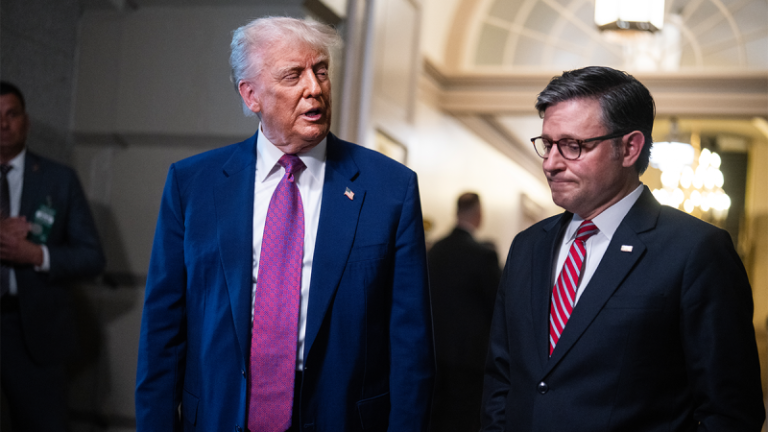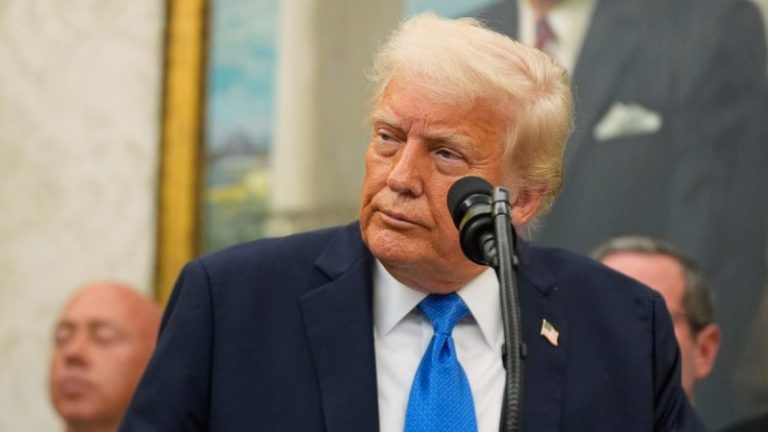The International Committee of the Red Cross (ICRC) has not had the opportunity for more than 590 days to visit hostages in Gaza and provide them with medical care. However, Communications Coordinator for the International Committee of the Red Cross Jacob Kurtzer tells Fox News Digital that the organization has been ready to provide hostages with medical assistance ‘from day one’ — despite not being granted access to them.
‘It’s no secret that the ICRC has not been able to visit hostages to carry out the work that’s mandated — to carry out our humanitarian work, to visit, to bring medicine,’ Kurtzer told Fox News Digital. ‘I can assure you it’s not for lack of trying, and I can assure you that every single day, our colleagues here, our colleagues at headquarters, and our colleagues at other delegations are working to try to find a way to get access.’
Since its establishment over 160 years ago, the ICRC has prided itself on serving as a neutral body focused on delivering aid and medical care. However, since the war in Gaza began, the ICRC has faced criticism from some for not pushing to visit the hostages and for its volunteers taking part in Hamas-led hostage release ceremonies.
When asked by Fox News Digital about the ceremonies, Kurtzer said that ICRC workers in Gaza have ‘very little ability to dictate the terms and the protocols of the release operations.’ However, he added that the organization believes these hostage release operations ‘must be done in dignity and should be done privately.’
‘So, certainly there were things that we saw that we didn’t like. We conveyed our views about those directly through what we call our bilateral and confidential dialogue,’ Kurtzer said.
Despite facing mounting pressure and obstacles, the ICRC seems to be sticking to its mission. Kurtzer said that the organization is ready to ‘jump at’ any opportunity to reach the hostages and provide them with assistance. However, Hamas has still not given them that opportunity.
Kurtzer also addressed the ICRC’s position on access to Palestinian detainees held by Israel.
When discussing the lack of opportunities to visit the hostages who have been held in Gaza since Hamas’ brutal Oct. 7 massacre, Kurtzer also mentioned that the ICRC would like to have the opportunity to visit Palestinians being held by Israel. Fox News Digital then pressed Kurtzer on whether the ICRC saw the situation of hostages in Gaza and Palestinians being held in Israel as equivalent. Kurtzer later clarified the comments in a statement to Fox News Digital.
‘The ICRC recognizes the distinction between hostages and detainees enshrined in international humanitarian law (IHL). Hostages are captured or held with the threat of being harmed or killed to pressure another party into doing something, as a condition for the hostage’s release or safety. Hostage-taking is a violation of IHL,’ he said. ‘We provide assistance and work to alleviate suffering on all sides of a conflict. Under IHL, the ICRC must be notified of and granted access to Palestinians in Israeli custody, and we continue to seek this access.’
Beyond the hostages, ICRC is tasked with providing humanitarian assistance in Gaza, something Kurtzer said is urgently needed. He called the situation in the Strip ‘catastrophic.’
Kurtzer recalled the relief that the recent ceasefire provided those on the ground in Gaza.
‘It provided hope. It provided hope for families on all sides. It provided hope to families of the hostages. It provided hope for people living inside Gaza,’ Kurtzer said. However, the resumption of military action has ‘contributed to a sense of despair,’ he said.
Since Kurtzer spoke with Fox News Digital, Israel has altered its position on humanitarian access, now allowing some aid trucks into Gaza. However, critics argue that the scale of assistance remains insufficient.
U.K. Foreign Minister David Lammy announced on Tuesday that his country was suspending trade talks with Israel over the handling of the war in Gaza. French President Emmanuel Macron also condemned Israel in a post on X. Additionally, U.N. Under-Secretary-General for Humanitarian Affairs and Emergency Relief Coordinator Tom Fletcher said the aid being allowed in was a ‘drop in the ocean.’
‘We really believe that the path forward is one where humanitarian assistance is allowed in and we urgently and we appeal over and over again for the parties themselves to find a better path forward because what we’re seeing now is just really very, very devastating,’ Kurtzer told Fox News Digital.






